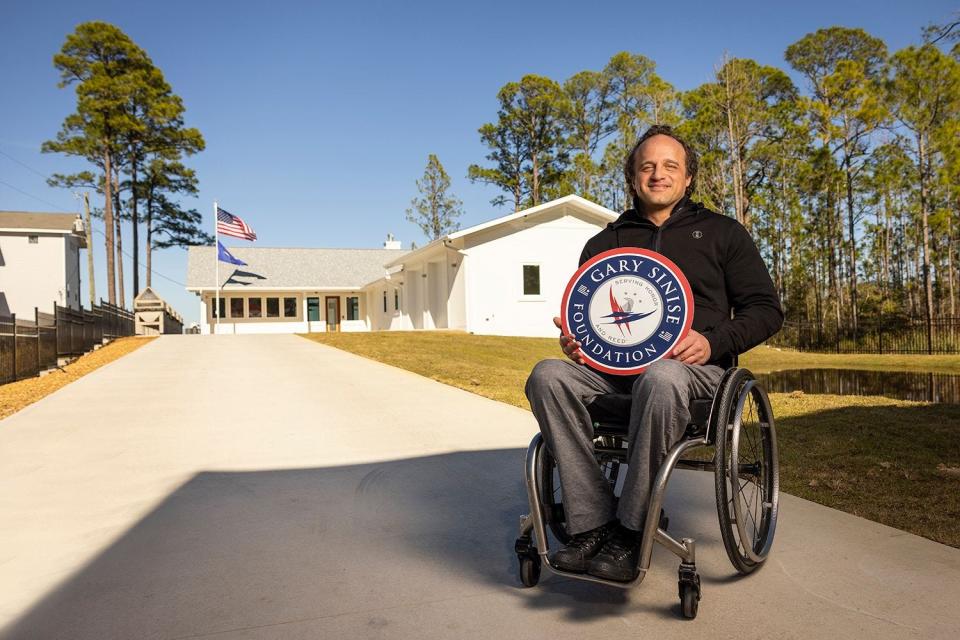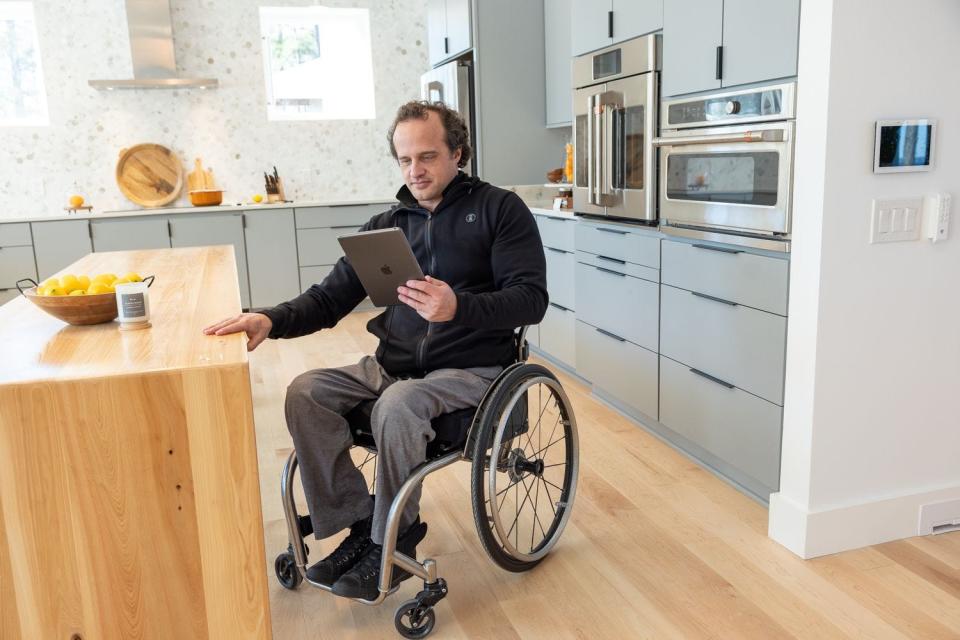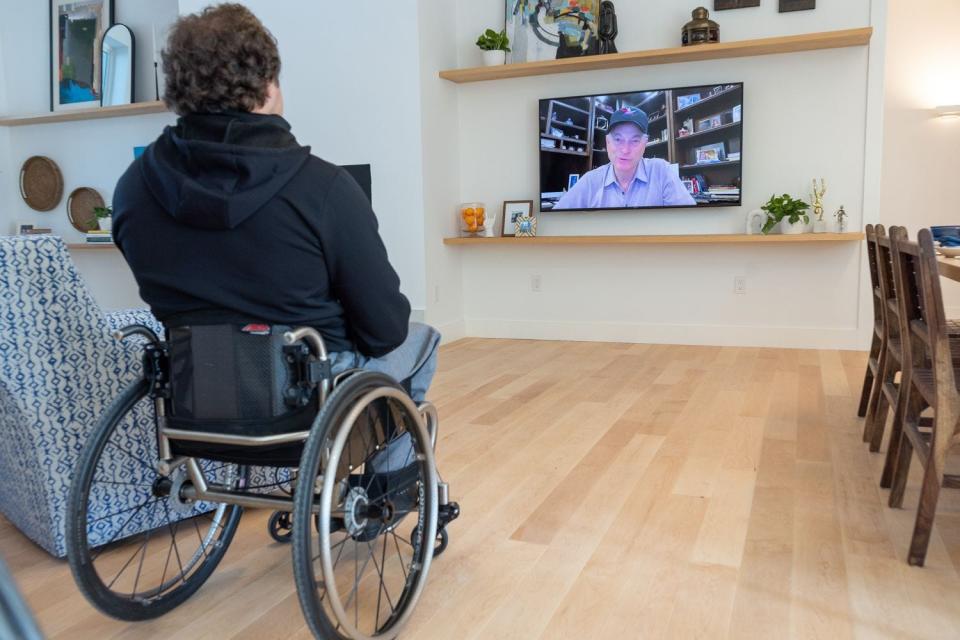'Forever home': Santa Rosa Beach wounded warrior gets house from Gary Sinise Foundation
SANTA ROSA BEACH — Now-retired Air Force Staff Sgt. Brian Schiefer wasn't supposed to be alive Wednesday. He was, in fact, supposed to have died more than a decade earlier.
Instead, Wednesday was the day Schiefer accepted the keys to his new Santa Rosa Beach home from the Gary Sinise Foundation, whose R.I.S.E. (Restoring Independence Supporting Empowerment) program provides specially adapted smart homes at no cost to the nation's most severely wounded heroes.
Sinise, an actor and humanitarian who became interested in veterans' issues after seeing how the Vietnam War affected the soldiers who fought it, established his foundation in 2011 after having worked individually to address veterans' issues. Today, the foundation operates a number of programs, in addition to R.I.S.E., to meet needs of veterans, active-duty military personnel and first responders.

Correa visit: Injured racing driver Juan Manuel Correa visits 7th Group wounded warriors to share perspectives
Service dog graduation: Veterans suffering from trauma get 'new leash on life' with K-9s at Healing Paws graduation
Fourteen years before he walked into his new house, Schiefer, then an Air Force TACP (Tactical Air Control Party Specialist, an intensely trained airman who embeds with ground units in frontline combat, with the ability to call in air strikes to assist those ground troops) was in training in the California desert for a fourth deployment overseas when a vehicle he was in overturned.
The Humvee rolled 75 feet downhill, fracturing Schiefer's spine in eight places and leaving him with a host of other injuries.
En route by helicopter to Loma Linda University Medical Center, rescuers began efforts to contact Schiefer's family for a possible last opportunity to see him.
"They didn't expect me to live through the night," Schiefer recalled Wednesday. "I was lucky to be alive, on many counts."
Schiefer underwent a 16-hour surgery, spent six weeks in intensive care, five weeks in inpatient treatment, and had five months of outpatient treatment before he was medically retired from the Air Force in 2009.
He moved to Florida the next year in hopes that the warm climate would help with one of the ongoing effects of his injury: difficulty in regulating his body temperature. During his time in the Air Force, Schiefer had spent time at Hurlburt Field, so he knew the area and saw it as a place to continue whatever healing he might find.
"I just started figuring out my life again," he said.

While taking advantage of locally available hyperbaric oxygen treatment, involving breathing pure oxygen in a pressurized environment, he also worked on everyday tasks such as reaching top shelves in stores to driving.
Additionally, Schiefer had some Air Force friends who were still at Hurlburt who assisted him in his recovery efforts.
A self-described "independent lone wolf" before his 2008 injury, Schiefer said his ongoing struggles both then and now have taught him that "it takes a community to really raise somebody."
As part of that effort, particularly in connection with his struggles related with regulating his body temperature and that he spent a lot of time indoors, Schiefer came to the realization that "the one thing I can change in this world is my environment."
He applied to the R.I.S.E. program, and following a 2018 conversation with Sinise, got on the construction list in 2020. Thus began a series of consultations between Schiefer and R.I.S.E., as happens with all R.I.S.E. homes, to tailor the home specifically to his needs.

The ongoing COVID-19 pandemic and supply chain issues imposed some delays on construction of the house, but all of that fell away as Schiefer officially took possession of the finished product Wednesday.

 Yahoo Autos
Yahoo Autos 